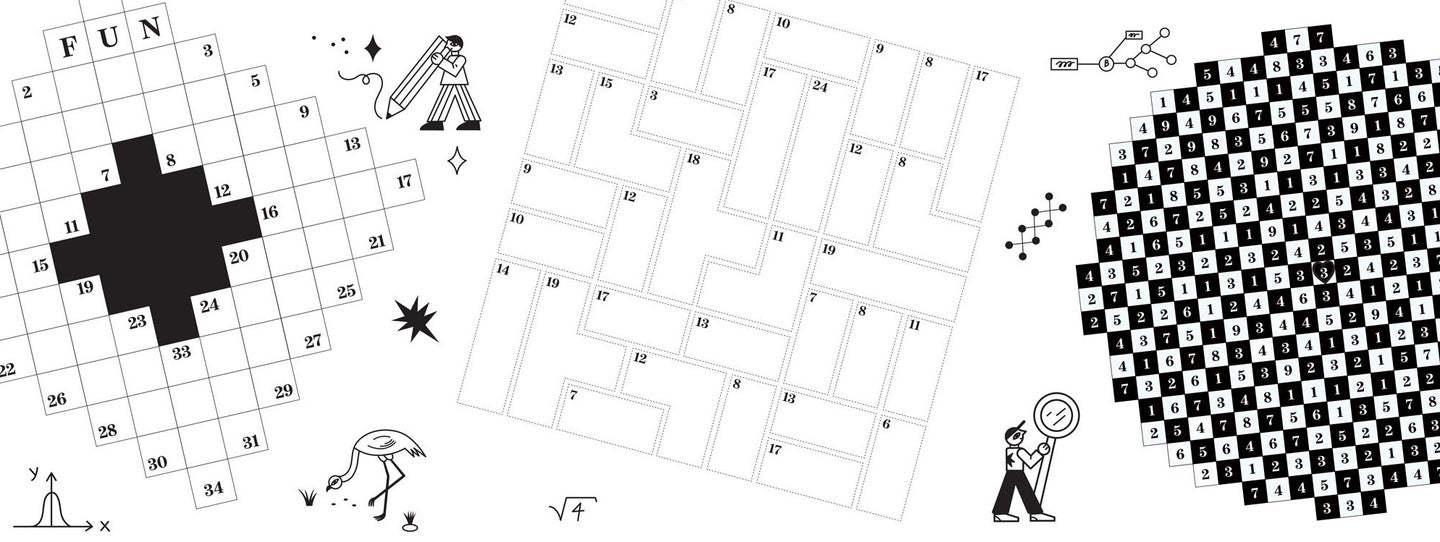Can you crack the world’s first crossword?
Try your hand at sudokus, riddles, mazes, and more with this free downloadable puzzle pack.


Popular Science’s Play issue is now available to everyone. Read it now, no app or credit card required.
People have been challenging their wits since at least the third millennium BCE, when ancient Sumerians carved riddles into stone tablets. (Try this one, for example: “There is a house. One enters it blind and comes out seeing. What is it?”) Over time, we’ve developed puzzles that test a variety of skills—and revamped the most popular forms to make them ever trickier. Yet as the difficulty of brainteasers has grown, so too has our urge to tap them for sweet respite from the everyday. Enjoy a little escape and see how many of these you can crack. (Pssst. It’s a school.)
Answers can be found at the bottom of the article.
Crossword
Players pencil in letters to feel the teensy “aha” rush when the answer fits. Research also shows that satisfaction might not be the only upside to crosswords: Regular playing may help delay memory loss and other signs of cerebral aging. Whatever the reason for our obsession, in the 107 years since a New York City newspaper first published one, the audience has grown steadily and now includes the hundreds of thousands of fans who try to defeat The New York Times’ trickiest grids daily.
Click here to view and download the crossword puzzles.
Maze
Three-dimensional mazes can make us feel as if there’s no escape. Even in 2D, a confusing path poses a unique challenge to our internal GPS. If the route is circuitous enough, even on paper, our hippocampus, which regulates learning and memory, kicks into overdrive to make sense of the environment. It uses visible cues—say a familiar switchback—to help us wend our way from one end to another.
Click here to view and download the maze puzzles with some bonus riddles.
Sudoku
You can solve almost any sudoku as long as there are at least 17 numbers filled in at the start. Unlike crosswords, these numerical grids require zero vocabulary and so translate to folks whose languages use pictograms instead of letters. While doing one daily might not turn you into an arithmetic marvel, some studies have suggested that these kinds of tasks can help keep noggins spry longer.
Click here to view and download the sudoku puzzles.
Logic
For more than 1,200 years, logic puzzles have revealed how well we reason. Although solving them can require some tricky calculations, they rarely involve any traditional arithmetic. They also test less concrete skills like imagination and memory. Most are crackable with some head-scratching and regular ol’ pencil and paper, but contemporary mathematicians also apply advanced techniques, including a type of problem-solving called dynamic programming, to parse the baffling clues.
Click here to view and download the logic puzzles.
***
Click here to view and download the answers.